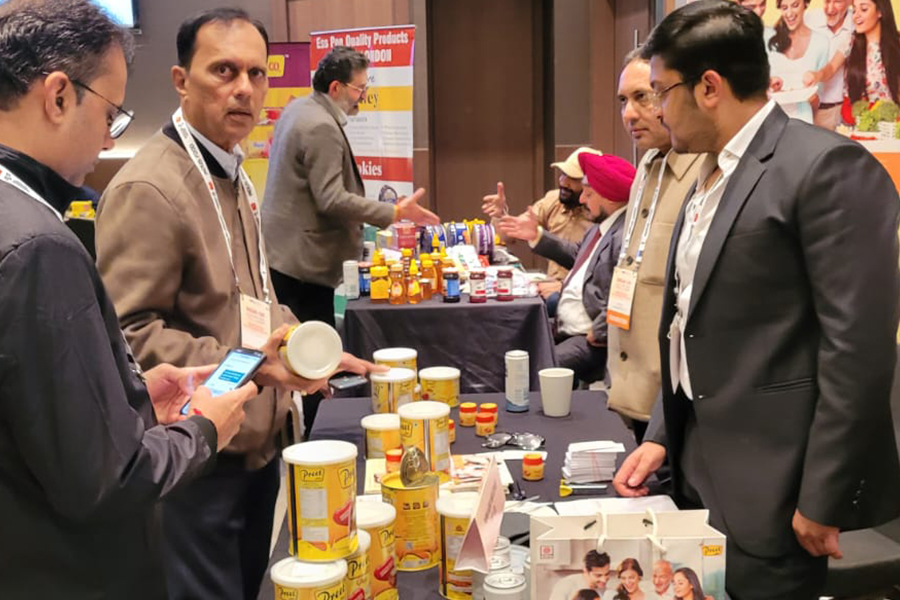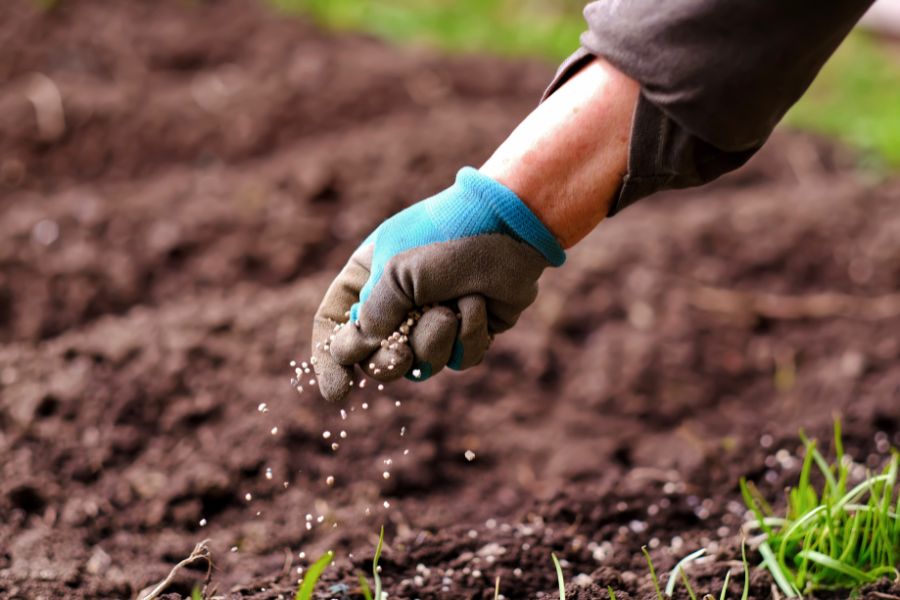Ensuring food is safe – the EU way
• An extensive body of EU-wide laws covers the entire food production and processing chains from farm to fork within the EU, as well as imported and exported goods
• European Commission aims to assure a high level of food safety and animal & plant health within EU through coherent farm-to-table measures and adequate monitoring.
• The responsibility of the member states, or in case of imports, the administration of the country where the business operates, is to put official control systems in place to verify the effectiveness of self-controls by the operator.
• Due to their high level of performance, EU rules are often at the basis for international trade standards.

Food production and gastronomy in Europe are based on the combination of knowledge, skills and practices and traditions relating to livestock and crop farming and to methods of conserving, processing, cooking and eating food.
The safety of food in the EU region is guaranteed through comprehensive control related to: food hygiene, animal and plant health and contaminants & residues. Harmonised legislations are enforced through three layers of control. The EU harmonized its sanitary and phytosanitary legislations throughout the Union. An extensive body of EU-wide laws covers the entire food production and processing chains from farm to fork within the EU, as well as imported and exported goods. In all its diversity, the EU is a single entity when it comes to safe food.
This is achieved through a system of three layers of control:
On the top of the system, the European Commission has a unique obligation to audit the control systems of member states and countries that export to the EU and verify that they are effective. The responsibility of the member states, or in case of imports, the administration of the country where the business operates, is to put official control systems in place to verify the effectiveness of self- controls by the operator. There is a clear allocation of responsibility on food-handling businesses and farmers to comply with EU rules associated with the obligation of self-control.
The European Commission aims to assure a high level of food safety and animal & plant health within the EU through coherent farm-to-table measures and adequate monitoring, while ensuring an effective internal market.
The implementation of this integrated Food Safety policy in the EU involves various actions, namely:
To assure effective control systems and evaluate compliance with EU standards in the food safety and quality, animal health, animal welfare, animal nutrition and plant health sectors within the EU and in third countries in relation to their exports to the EU;
To manage international relations with third countries and international organisations concerning food safety, animal health, animal welfare, animal nutrition and plant health;
To manage relations with the European Food Safety Authority (EFSA) and ensure science-based risk management.
The integrated approach to food safety is covered by the following;
Food – Every European citizen has the right to know how the food he eats is produced, processed, packaged, labelled and sold.
The central goal of the European Commission’s Food Safety policy is to ensure a high level of protection of human health regarding the food industry — Europe’s largest manufacturing and employment sector.
The Commission’s guiding principle – primarily set out in its White Paper on Food Safety – is to apply an integrated approach from farm to fork covering all sectors of the food chain.
Animals – The objective of the Animal Health policy is to raise the health status and improve the conditions of the animals in the EU, in particular food-producing animals, whilst permitting intra-Community trade and imports of animals and animal products in accordance with the appropriate health standards and international obligations.
The general aim of the Animal Welfare policy is to ensure that animals don’t need to endure avoidable pain or suffering and obliges the owner/keeper of animals to respect minimum welfare requirements.
The EU zootechnical legislation aims at the promotion of free trade in breeding animals and their genetic material considering the sustainability of breeding programs and preservation of genetic resources.
Plants– The European Commission takes actively part in the setting of international phytosanitary and quality standards for plants and plant products.
EU legislation has, over the years, provided for the harmonised protection of our ‘green resources’. Issues like pesticides, plant variety rights or Genetically Modified Organisms are some of the topics you will find in this section.
Food hygiene- Food business must ensure compliance with EU food law in their daily activities. All operators must have documented self-control systems in place to address the risks that may arise in their specific operations – whether it is meat player or a restaurant, a fruit importer or fish cannery. Farmers have also a key role in ensuring that their production complies with hygiene requirements. They are also at the start of the traceability chain.
Following are the responsibilities of food-handling businesses:
– Have document self-control in place;
– Identify and regularly review the critical points in their processes and ensure that controls are applied at these points;
– Notify authorities of their activities and cooperate in official controls;
– Be responsible for the safety of the food and feed that they produce, transport and store or self;
– Ensure traceability by rapid identifying any supplier or consignee
– Immediately inform the competent authority if they have a reason to believe that their food or feed is not safe,
– Immediately withdraw food or feed from the market if they have a reason to believe that it is not safe.
EU Member States are responsible for the enforcement of the applicable EU laws throughout the food and feed chain. Competent authority must organize official controls (that reflect the risk of the respective categories) in order to verify that the activities of food- handling businesses and good placed on the EU market comply with all requirements. All Member States work on the basis
Countries outside the EU wishing to export to any of the EU Member State must have similar control systems in place to guarantee compliance of imported food with all applicable EU standards.
Role of national authorities
– Overall about 100,000 independent and well- trained staff monitor the 25 million food-handling businesses that are active throughout the EU supply chain – from a feed mill to a restaurant
– The ‘Better Training for Safe Food’ – BTSF- programme ensures that best practices are disseminated among the competent authorities across partner countries outside the EU.
The European Commission verifies that the control systems are effective
This is one of the tasks of the Director-General for Health and Food Safety. It is in charge of auditing of the controls and inspection systems in EU Member States from farm to consumers. This ensures that food produced in the EU is subject to serious controls. In practice, more than 200 systems audits are carried out annually by the European Commission in EU Member States and their Countries.
Because of their high level of performance, EU rules are often at the basis for international trade standards.
The EU is actively involved in the development of their high level of development of international standards of the World Animal Health Organization (OIE), the Codex Alimentarius Commission or the International Plant Protection Convention. The work contributes to improved food, safety, animal health and plant health around the world and helps in facilitating trade in food and agriculture products based on globally agreed rules.
Traceability and rapid information exchange
TRACES- TRAde Control and Expert System- is the online system that tracks all movements of animals, plants, food and feed imported from outside EU and traded through Member States. TRACES manages official controls and route planning for animals transport online.
National competent authorities post their certificates online through TRACES before a consignment is shipped. Authorities in the receiving country are pre- notified of the arrival and can plan their controls at the EU border, at the final destination or even during the transport of animals.
TRACES simplifies trade and makes it safer by using a user-friendly interface available in 35 languages. More than 36,000 users from almost 80 countries worldwide are connected through TRACES and it issues over 50,000 veterinary and phytosanitary certificates every month.
The Rapid Alert System for Food and Feed (RASFE) allows immediate reaction throughout the EU Member States to any threat to public health that may be detected in single market or at border controls. More than 3,000 notifications are processed every year to allow competent authorities to react immediately and recall any suspect food or feed from the market quickly and effectively.











Leave a comment